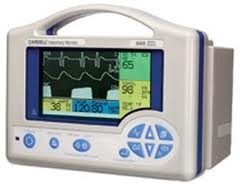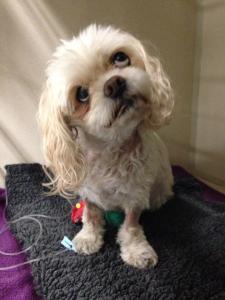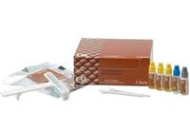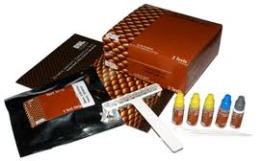
It started out like any other day. Pierre, a 10-month old beagle, was out for a walk along Merri Creek in Coburg with his owner and friend when the unthinkable happened. Lachlan Scully, Pierre’s owner, was chatting to his friend when he heard a sudden and gut wrenching howl. Having no idea what had caused Pierre to cry out, and due to the almost instant vomiting and diarrhoea, Mr Scully rushed his beloved puppy to the Heritage Veterinary Clinic, where he collapsed upon arrival.
The consulting vet was concerned that Pierre had potentially been bitten by a snake, and therefore administered a vial of antivenom. However, due to his deteriorating condition and the venom causing paralysis of his respiratory muscles, Pierre was unable to breathe on his own and needed a mechanical ventilation machine to breath for him. Pierre was transferred to the 24-hour Animal Accident & Emergency Centre in Essendon, where our team of dedicated emergency vets and nurses were at the ready to continue treating him immediately.
After using a Snake Venom Detection Kit, it was confirmed that Pierre had indeed been bitten by a Tiger Snake and had severe envenomation. A second vial of antivenom was quickly given but, due to Pierre’s serious condition, he was still near death for days and the emergency team had a mammoth task ahead of them in order to keep him alive.
As is the case with all snake envenomations, especially with Tiger Snakes, there is usually more than just one problem that emergency vets need to treat simultaneously, making care of the envenomated patient very intensive. Pierre also suffered from bleeding in his gut and bladder, caused by the venom stopping his blood from clotting properly, so a plasma transfusion was needed to replace clotting factors in his blood. Additionally, he developed aspiration pneumonia due to paralysis preventing him from being able to swallow. His continuing respiratory paralysis meant that he had to remain on a life support ventilator for nearly 36 hours. The other conditions that the emergency team needed to treat were Acute Kidney Injury; severe muscle damage requiring strong pain medication; Vasculitis (leakage of fluid from his vessels) causing fluid accumulation in his abdomen and under his skin; anaemia (requiring a further blood transfusion); pancreatitis and liver damage.
Pierre quickly won the hearts of the Animal Accident & Emergency team, who gave their all and often came in on their days off to help care for the courageous beagle during his recovery. After a marathon effort and 11 days in hospital, all of his conditions were improving and he was given the go ahead to return home. Pierre will still require several weeks of rest and further checkups at AAE to ensure a full recovery, but after such a severe snake bite he is incredibly lucky to be alive.
Due to Pierre’s extreme circumstances and the amount of time and resources that were required to treat his life-threatening conditions, the final treatment cost reached just over $20,000. Treatment for snake bites isn’t normally quite so much, but Pierre was one of the worst snake bites that Animal Accident & Emergency have ever seen and required extensive medical care due to his many ailments. However, Mr Scully wasn’t worried about the cost and just wanted to do anything possible to save his much-loved beagle, and he had wisely bought Pet Insurance for Pierre, which thankfully covered over $7,000. Also, with thanks to the overwhelming public support, a fundraiser for Pierre has been organised for Saturday 30th March. More information can be found on the Facebook page created for Pierre.
If you ever suspect that your pet has been bitten by a snake, remember that time is of the essence and it needs to be treated as soon as possible. The longer you wait the more severe the condition will become. Animal Accident & Emergency have two 24 hour emergency centres in Essendon and Point Cook that are fully equipped with state-of-the-art technology to treat all emergencies right across Melbourne. Antivenom is always kept on the premises and our experienced team of emergency vets and nurses are always at the ready to care for your pets.
In case of a snake bite or any emergency, please phone Animal Accident & Emergency:
Essendon Fields (03) 9379 0700
Point Cook (03) 8368 7400
We’re always open, We always CARE

www.animalemergency.com.au
























